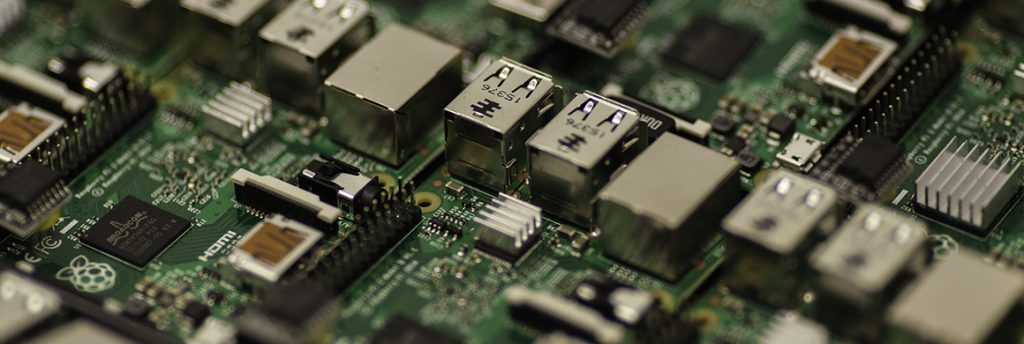Hot MBA Jobs: Information Security Analyst

Many of the hot MBA jobs we cover here at MetroMBA focus on the intersection between business and tech. As technology advances, the business world needs to find new ways to harness this tech to automate, analyze and protect a company, its assets and intellectual property. One such job is the Information Security Analyst.
So what’s an Information Security Analyst (ISA) do?
According to the Department of Labor, ISAs plan and carry out security measures to protect an organization’s computer networks and systems. Their responsibilities are continually expanding as the number of cyber attacks increases. So an ISA is essentially an anti-hacker hired by a company to keep their servers safe?
Pretty cool. Let’s take a closer look.
Cyberattacks are not uncommon nowadays. The Ashley Madison adult entertainment website was hacked in 2015. Sony experienced a major attack in 2014 that resulted in the leak of unreleased films and personal information of actors and studio employees. JPMorgan Chase & Co and Target have also been victims to a major data breach in recent years.
ISAs are the folks who have to stay one step ahead of hackers, and figure out the potential ways they can attack, before these attacks happen. Management usually hires an ISA to monitor the organization’s information systems to look for threats to security, establish protocols for identifying and neutralizing threats, and maintain updated anti-virus software to block threats.
According to Criminal Justice Degrees Schools, ISA’s are also responsible for setting the computer usage protocols for their organization, for facilitating training on minimizing threats to the IT system, and for determining which types of software the organization should use. People working in this field are investigators, who must get to the bottom of how a system has been compromised and take the appropriate measures to resolve and the problem and make sure it doesn’t happen again.
According to CollegeGrad.com, here’s a list of the typical tasks an ISA is responsible for:
- Monitor their organization’s networks for security breaches and investigate a violation when one occurs
- Install and use software, such as firewalls and data encryption programs, to protect sensitive information
- Prepare reports that document security breaches and the extent of the damage caused by the breaches
- Conduct penetration testing, which is when analysts simulate attacks to look for vulnerabilities in their systems before they can be exploited
- Research the latest information technology (IT) security trends
- Help plan and carry out an organization’s way of handling security
- Develop security standards and best practices for their organization
- Recommend security enhancements to management or senior IT staff
- Help computer users when they need to install or learn about new security products and procedures
Where do Information Security Analysts Work?
Information security analysts can work in both the public and the private sectors, but most work for computer companies, consulting firms, or business and financial companies. Other examples of potential employers include: federal and the local government agencies, banks, healthcare organizations, retail stores, and educational institutions. Put simply, anyone with a computer system in place must have the data of its clients and employees protected.
According to the Department of Labor, this career’s job outlook is on the rise. Information security analyst employment is projected to grow 18 percent from 2014 to 2024, which is much faster than the average occupations. This makes sense: As cyberattacks have grown in frequency, and analysts will be needed to come up with new, cutting edge solutions to prevent hackers from stealing information or crashing computer networks.
Of all the employers looking to add talent in this field, the federal government is expected to greatly increase its use of information security analysts to protect the nation’s critical computer systems. The healthcare industry also figures to add a lot of ISA jobs moving forward as they expand the use of computer systems to keep medical records. ISAs are necessary to create the safeguards that keep patient information secure.
Employment opportunities are also growing in small and medium-sized businesses, as these businesses increasingly adopt cloud services that do not have their own dedicated IT departments. In fact, College Grad projects that the hiring of ISAs will grow 36 percent in computer systems design and related services from 2014 to 2024.
ISAs are also well compensated for their important work: According to the Department of Labor, the median annual wage for information security analysts was $90,120 in May 2015.
How does one become an Information Security Analyst?
According to US News and World Report, ISAs generally have a bachelor’s degree in a computer-related program, such as computer science or programming, can find entry-level positions in the field. But ISAs with working experience and an advanced degree, such as an MBA with an information systems specialization, may find advancement opportunities as a chief security officer, an information technology manager, or an information systems manager. Programs that offer this type of MBA specialization typically require 2 years of study beyond the undergraduate level and include both business and computer-related courses.
